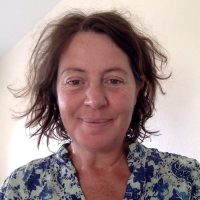View this post on Instagram
I’ve recently become aware of a new kind of burnout: intellectual bypassing.
I don’t mean thinking too much or toward a particular subject in general.
I’m speaking about the tendency to look for solutions to life’s innumerable existential problems by relying on the mind’s ability to think them through and to avoid the actual pain of having to face them.
I am so taken aback by this revelation that I feel compelled to share.
I recently moved back to Israel, where my family resides as well as my partner, and the incredible spirit of the place itself. This move brought out every kind of challenge; all the things I left behind nine years ago were waiting patiently for my return.
The same faces greeted me from bus windows and street corners, a bit more wizened and crazed but unmistakable.
Jerusalem is a place that can conjure a person out of thin air if they happen to cross paths with my memory. Everyone I ever met appeared in familiar spots, often wearing the same worried or bemused expression. And every kind of sophisticated labyrinth of self-avoidance was there as well.
For me, the only way out is through.
Living on savings and the dream that I can recreate any reality if I can only define it, I started suffering from confused thinking. For the umpteenth time, I considered entering psychotherapy, but I have never known how to be a patient.
Finally, when a dear friend recommended an art therapist, I felt I had to give it an earnest effort.
I started researching everything I could about art therapy. I crash-studied developmental trauma and attachment theory in order to be prepared as a client.
But this madness sent me spinning in circles, making me even more anxious. It is not my job to be the expert, the therapist, the trauma specialist—it is my job to just be.
As a yoga teacher, I am used to giving instructions in Savasana, telling my students to do nothing. But it seems I couldn’t quite figure out how to be on the receiving end of a therapist.
My instinct for intellectual bypassing was exhausting and getting in the way of actual healing.
I finally asked my therapist if I should read about trauma. She scrunched up her face as if she had tasted something horrible and said, “It is too much in the mind.”
She let me know that she was holding me in the space of healing and that that was enough. I felt relief and release.
I could perhaps let go. It is the start of a long journey, but I’m ecstatic not to be in the driver’s seat all the time. It reminds me of a famous quote by John Cage, “Don’t try to create and analyze at the same time, they are different processes.”
I would replace, create with heal.
Healing is an essentially receptive process, where one accepts love and help, including from the depths of one’s own soul.
Here are my three tips to interrupt the tendency for intellectual bypassing that stops our healing:
1. Get embodied.
Even though embodiment has become a catchphrase for new age marketing, instead of reading and dreaming about it, I recommend actually doing it.
This requires a withdrawal from language itself. Breathe. Move. Go swimming or dancing—and please, don’t tweet about it.
Live in the spacious solitude between yourself and life. Practice any enjoyable act over a sustained period of time without interruption. Walk for an hour in nature—without your phone.
2. Make art and create.
Generating original expressions of life experience, otherwise known as art, is the single most effective step I’ve stumbled upon to regain the agency of my soul.
When I draw, sketch, paint, write poetry, or make music, I am instantly transported to the country of my actual self, my beautiful, original, and unique, essential gift of personhood that the world simply cannot wait a moment longer to embrace.
3. Talk to a friend.
When I arrived in Israel and felt the onus of success, browbeating me into the earth, I reached out to my dearest girlfriend, who has in the years I’ve been away, recreated herself many times, and is now a beacon of stability where before I was the rock.
How our roles have reversed, but how my love has grown. Of all things, I am most grateful for a heart-friend who can deeply listen to my fears and give me absolute validation. I’m blessed to know even one or two others like this, and they are far away.
If someone you love who loves you is out there but not in your neighborhood, get on the phone or Zoom and connect—it is the best form of therapy, and it is free.
And I have a strong feeling that now is the right time to apply these three suggestions.
It is not our job to be the expert, the therapist, the trauma specialist—it is our job to just be ourselves.
~










Read 10 comments and reply